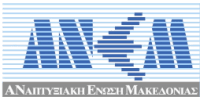The project Response/Ability (R/A), which is funded by the European Programme Erasmus+, aims to create a space to increase skills of both youth NGOs and young NEETs in applied social research, design thinking, service and speculative co-design, in order to facilitate the acquisition of design tools needed to respond to contemporary urban challenges. Iterating the successful proposal “Response/Ability – school of co-design and transformative imagination” (www.response-ability.eu), developed in 2021 by Codesign Toscana and promoted by the municipality of Prato (Italy), it is being proposed a cooperation and transnational application of R/A in order to capitalise and diffuse this concept: a new project targeting young NEETs under 30 interested in acquiring the principles of co-design theory, as well as in the possibility of collectively conducting research and designing in the context of contemporary cities. R/A relies on co-design methodologies and a cooperative learning approach, using the urban context as a non-formal education platform for the development of youths’ technical and soft skills.
R/A has to do with several concrete objectives that the consortium intends to accomplish:
- Creating a digital toolkit of learning materials and tools for the design of future urban scenarios related to sustainable development and ecological transitions topics – i.e., climate change adaptation, urban complexities, post-pandemic imaginaries;
- Piloting the R/A ‘pop-up school’ and producing at least three urban design scenarios for each local area piloted, both in Italy and in Greece, involving local youth NGOs and young NEETs;
- Producing and translating one methodological R/A pop-up school toolkit to be disseminated in the two cooperating countries;
- Monitoring, assessing and communicating the social impact generated by the project;
- Developing the project’s impact report and final policy recommendations. As far as the project outcomes are concerned, the R/A consortium is committed in: Exchanging and peer-learning a collaborative design-based methodology related to urban sustainable development topics and ecological transitions;
- Involving at least 2 local youth NGOs and 30 NEETs for each piloting country in a process of urban exploration and design thinking;
- Training representatives (staff) of youth NGOs in collaborative design methodologies in order to replicate these in their internal educational and engagement processes;
- Engaging young NEETs in themes related to contemporary urban issues, climate change adaptation concept and social innovation;
- Supporting the replication of the R/A pop-up school concept and methodology in further local urban contexts, together with youth NGOs and other stakeholders.
The partner's structure of the "Response/Ability" project consists of the following::
- Codesign Toscana ETS, Coordinator partner (Italy),
- Open Impact srl, (Italy),
- KEPA - BUSINESS AND CULTURAL DEVELOPMENT CENTRE (Greece),
| Date | Activity |
|---|---|
| 17/10/2023 | Pop-Up School Co-creation Toolkit |
| 12/10/2023 | Response/Ability (R/A) Final Event |
| 12-14/06/2023 | Response/Ability Pop-Up School Results |
| 21 & 23/03/2023 | R/A: Train the trainer Actions |
| 13-15/12/2022 | P2P Learning Workshop of the Response/Ability project |
| 20/09/2022 | Response/Ability Kick-off Meeting |




